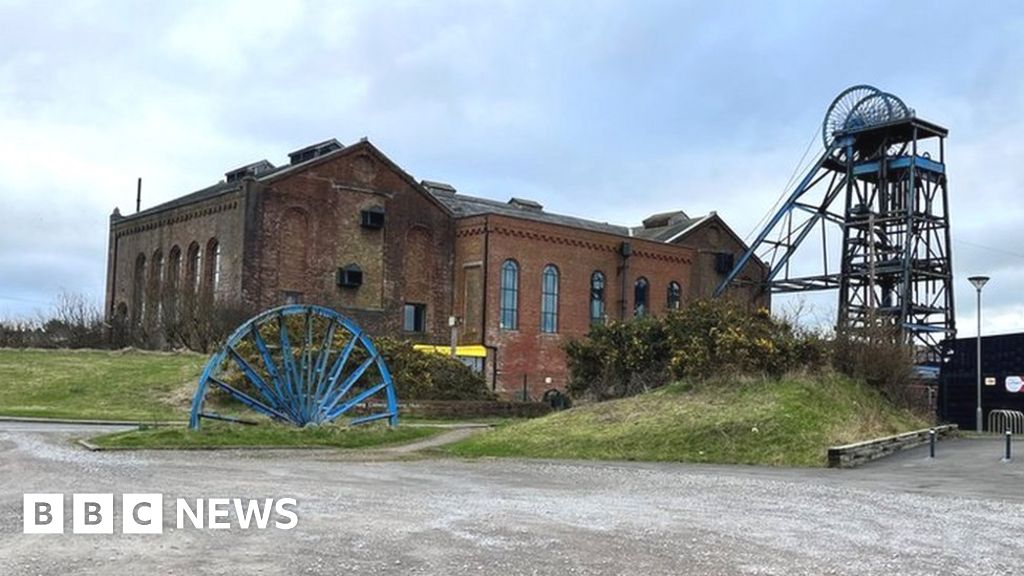BikinGlynn
Member
was a documentary on BBC4 last night - when coal was king. didnt see it myself

I have several Coal Mining Books available a number which have been mentioned hereI wasn't sure if this should go in the books section, or the mining section, but settled on the latter, as it's the mining hive brain I'd like to pick today.
My 8 year old has been learning about coal at school today, resulting in most of his class marching around the playing field chanting "no more coal".
He didn't join in.
While I have no problem looking for cleaner energy sources, coal has been, and remains to this day, responsible for rising living standards of millions of people across the world. Following things back to their source, we are all reliant on coal, for many of the things we take for granted every day.
Working at Ferrybridge Power Station, I really felt part of something special, providing the energy that kept the country going.
Coal has an amazing history and it's a real shame that young people are now taught such a one-sided view of our history and economy.
So, can anyone recommend any decent books in the history of coal, suitable for a young reader (his reading age is allegedly 14), that focus on the huge benefits that it's brought to mankind?
Thanks in advance.
was a documentary on BBC4 last night - when coal was king. didnt see it myself
I think the Ladybird book of Gender Dysphoria would fly off the shelves. Seriously though, the above book is good and most likely you'll get a copy on e-bay.
No doubt if Ladybird were still publishing there would be current titles like Vape Shop and The Nail Bar
"encouraged to show it at school" - don't go there! you'll get labelled as a climate change denier, seditious leftie and probably criminally insane. Reason and sensible discussion are on the 'back burner' whilst dogma stalks the land.I don't have a TV licence Badlad, so I'll have to pass on that suggestion, but perhaps they could be encouraged to show it at the school.
IMHO we could for about the next 20 years or so; after which even the 'younger end' would be getting too old. I fear the equipment situation is probably worse and we would probably have to import much of it (sadly, as with so much else). Thirty years on plus - I would think all the equipment, the expertise and very possibly the manual labour would have to be imported; if Brits won't turn out to 'scrat' for potatoes & broccoli I doubt they'll be queueing up to hew coal. Sad, once such a great industry, many many fine men.... gone. What a waste, what incompetence, what malice got us here?An interesting question arises if we ever decided to deep mine again, could we? Is there any expertise a available in the UK? Some years ago there would have been a plethora of suppliers of coal mining equipment, anything left if it?
I agree, another 'missing the mark' programme from the state broadcaster. I suspect many of the Southern intellectuals (and Tory politicians) don't know what coal was used for; they probably think coalmining was just something they told low-life thickoes (such as myself) to do to keep them occupied and out of mischief. And then, ungrateful as were, we deliberately piled it all up into big heaps to deface the landscape and block the views of the landed gentry - then we went off to play rugby. Rugby matches were fitted in between the bouts of industrial strife we caused.I started watching it, but got bored and came back on the computer - mostly about the music miners made rather than the mining.
Look North had some guy on years ago who claimed he could 'mine' the seams along the coast with remote flexible drills to just extract the useful fractions without significant subsidence or risk to humans, but dunno what happened to that.
Try YouTubeI don't have a TV licence Badlad, so I'll have to pass on that suggestion, but perhaps they could be encouraged to show it at the school.

I recall reading recently that there wasn't a single mining engineering graduate from Calbourne last year. If that's true, the future looks pretty grim.An interesting question arises if we ever decided to deep mine again, could we? Is there any expertise a available in the UK? Some years ago there would have been a plethora of suppliers of coal mining equipment, anything left if it?
I'll never forgive that militant leftist Thatcher for shutting down the coal industry. Thatcher and her woke intellectuals Milton Freedman and Hayak and high on their theory of market economics."encouraged to show it at school" - don't go there! you'll get labelled as a climate change denier, seditious leftie and probably criminally insane. Reason and sensible discussion are on the 'back burner' whilst dogma stalks the land.
I'm surprised that this data isn't publicly available, but I certainly can't find it. I've filed an FOI request with the University, and will update the thread when we have an answer.I recall reading recently that there wasn't a single mining engineering graduate from Calbourne last year. If that's true, the future looks pretty grim.
